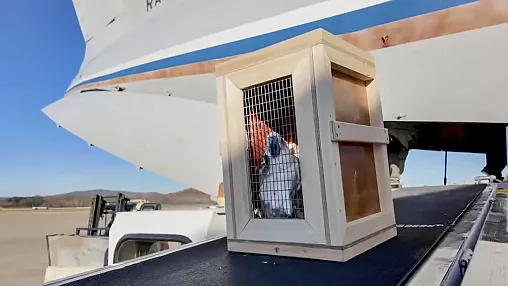In a surprising move that has captured international attention, Russia has sent more than 70 animals as a gift to North Korea. This unusual diplomatic gesture, which includes a variety of animals, from rare species to more common types, is seen as part of Russia’s efforts to strengthen ties with North Korea amidst growing geopolitical tensions in the region.
The animals, which are believed to be part of a broader exchange program, were delivered to North Korea’s state-run zoos and research facilities. The shipment includes both wild and domesticated animals, aimed at enriching the country’s zoological collections and providing educational resources for research purposes. The animals are reportedly being housed in special facilities designed for their care and well-being.
This exchange of animals is not an isolated event, but rather part of a series of diplomatic gestures from Russia towards North Korea. The two countries have been deepening their cooperation in various sectors, including military, economic, and cultural exchanges, over the past few years. The animal donation is viewed by many analysts as another sign of the growing relationship between the two nations, especially in light of their shared interests in countering Western influence and sanctions.
While the specific motivations behind Russia’s gift remain unclear, some experts believe it serves a dual purpose. On one hand, it acts as a goodwill gesture towards North Korea, reinforcing a sense of solidarity between the two countries. On the other hand, it may be a strategic move by Russia to secure its influence in the region, particularly as it faces increasing isolation from the West.
The animals were reportedly chosen to meet the specific needs of North Korean research institutions, with a focus on biodiversity preservation and scientific study. The gift is expected to contribute to the country’s zoological and ecological studies, which are often limited by international sanctions that restrict access to foreign resources.
This animal gift exchange also highlights the often unconventional ways in which nations engage in diplomacy, as symbolic gestures like these can carry significant weight in international relations. The arrival of these animals is just one of many steps in an ongoing effort to enhance bilateral relations between Russia and North Korea, both of which are facing various challenges on the global stage.
As Russia continues to expand its influence in Asia, experts will be closely watching how these gestures impact the geopolitical landscape in the coming years.
